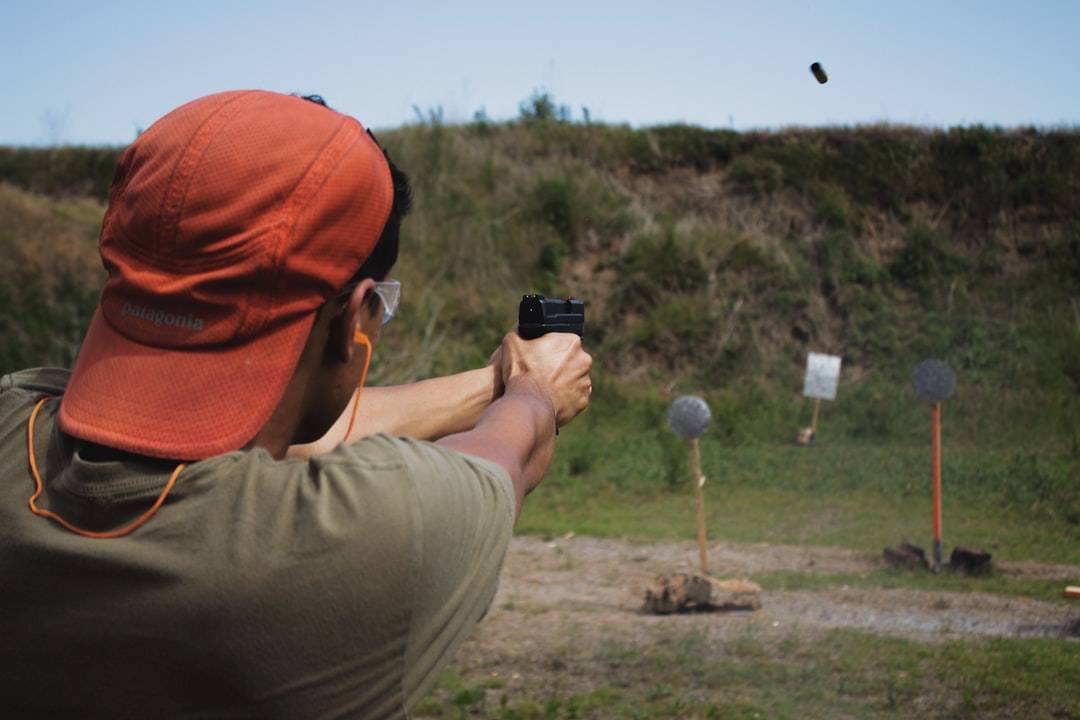Four out of every ten Americans live in a household with a gun. With most gun owners owning multiple weapons, America has the highest per capita rate of gun ownership of any country in the world.
What does this mean for you? It means that no matter what you think about guns, you’re likely to come into contact with one at some point. When that happens, you’ll want to be able to handle it safely.
If you haven’t taken a handgun safety course, there’s no better time. Keep reading to learn more about firearm safety certificates and what a basic gun safety course can offer you.
Basic Firearms Safety
Imagine that you’re a person who prefers public transit to driving. In fact, you don’t even own a car, even though you live in a city with lots of vehicles on the roads. Would it make sense to refuse to learn the basics of how to drive a car?
Of course not. Even if you’re confident that you never want to own a car, you should know basics like how a steering wheel works, the difference between the gas pedal and the brake, and what road signs mean. That way, you’ll be prepared in case of an emergency.
Most estimates agree that there are more guns than people in the United States. Like it or not, guns are almost as common as cars. You might never want to own one, but it’s still smart to know how to act safely with one in case of an emergency.
At a firearm safety course, you’ll learn the basics of pistol safety, including:
- Always keep the gun pointed in a safe direction
- Never point at anything you don’t intend to shoot
- Keep your gun unloaded until it’s time to fire
- However, assume that your gun is loaded at all times
- Know what’s behind your target
- Keep your gun clean
These basic gun training points sound simple. However, like any skill, they take practice.
Learn them before an emergency occurs so that you follow them automatically in a crisis. That’s what a basic gun safety course can do for you.
Storing Handguns
The Harvard Research Center found that improper gun storage is a leading cause of accidental gun deaths. Safe gun storage is a key component of basic gun training, so expect to cover it when you take a gun safety course.
Even if you’re not a firearm owner, knowing how to properly store a gun can save someone’s life.
The first key to safe gun storage is removing ammunition from the gun before storing. The next key is to keep the gun locked up and secure. You might use:
- A gun case
- A lockbox or safe
- A dedicated gun safe
- Trigger locks
According to Pew Research data, most American gun owners say that they keep a gun for personal safety and defense. That means that you may want to access your stored firearm for personal defense. You’ll want to store it in a secure way, while still being accessible enough to get your hands on it quickly in an emergency.
Safe gun storage is one important reason to take a gun safety course. You’ll learn everything you need to know about keeping your gun stored in a safe, accessible way.
Range Conduct
There’s only one way to get comfortable handling a gun: practice. Safe gun handling means spending some time at the shooting range.
Gun ranges require you to follow basic gun safety protocol at all times. However, they also have additional safety rules that you should know.
The specific rules may vary among different shooting ranges, but they usually include:
- Avoiding certain types of ammunition (such as re-manufactured and steel-core bullets)
- Not drawing your weapon from a holster
- No shooting your own targets, such as bottles, cans, or fruits and vegetables (like pumpkins)
Learning appropriate range conduct is a key component of basic gun training. You’ll learn how to handle your gun safely at a range when you earn your firearm safety certificate.
Understand Gun Regulations
Your responsibility with guns doesn’t end at the range. No matter the context, when you pick up a gun, you have a plethora of legal responsibilities to think about. One of the most important legal factors to consider is your state’s concealed carry reciprocity arrangements.
So you have a concealed carry permit from your home state. That means you’re free to concealed-carry your weapon in any state — right?
Actually, no. Only certain states have concealed carry reciprocity arrangements. That means that your concealed carry permit only applies to some other states, if any.
As a gun owner, you have a responsibility to know where you can legally carry your weapon. If you’re not sure where to start, find your state’s Concealed Carry Reciprocity here.
Knowing when and where you’re allowed to carry your weapon is just one of the legal aspects that firearm owners need to know about. A handgun safety course will cover your responsibilities so that you can be confident that you’ll stay on the right side of the law when you have a gun in your hand.
Find Your Handgun Safety Course Today
Whether you’re firmly anti-gun or shopping for your tenth firearm, the truth is simple: gun safety is everyone’s responsibility. You never know when you might need to handle a gun, so make sure you can do so safely.
There’s no excuse to avoid getting basic gun training. With a licensed handgun safety course, you’ll learn that gun handling isn’t as intimidating as it sounds. Find one today and sign up.
Staying smart and safe in today’s world isn’t easy. With our blog, it’s a little easier. Keep clicking through our articles for more insightful tips, lifestyle advice, and more.
